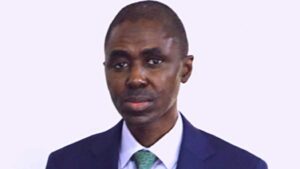
SMEDAN seeks stakeholders’ support for MSMEs growth
The Small and Medium Enterprises Development Agency of Nigeria (SMEDAN) has solicited the support of stakeholders to ensure that the Micro, Small and Medium Enterprises (MSMEs) sector becomes more competitive.
The Director-General of SMEDAN, Dr Olawale Fasanya, gave the advice in Abuja on Monday at a news conference to commemorate the 2023 World MSMEs Day with the theme “Building a Stronger Future Together’’.
Reports that the United Nations General Assembly set aside June 27 each year as Micro, Small and Medium-sized Enterprises Day.
Fasanya recalled that the last survey jointly conducted by the National Bureau of Statistics (NBS) and SMEDAN in 2020, MSMEs in Nigeria did relatively well in their contributions to both employment and Gross Domestic Product (GDP).
“MSMEs were responsible for 46.31 per cent of the GDP and over 84 per cent of total employments,’’ he said.
Fasanya said that support from government and the private sector was critical in promoting the growth of the MSMEs sector.
While saying that the sub-sector only contributed 6.21 per cent to the total export basket of Nigeria, Fasanya described the record as abysmally low when compared to other emerging economies.
“The inference here is that our MSMEs are not globally competitive hence the need to ensure that the narrative is changed more especially with the anticipated impact the fuel subsidy removal would have on the sub-sector.
“While expecting more deliberate and coordinated support from other key stakeholders, SMEDAN is implementing support systems that can serve as the launch-pad for MSMEs development.’’
According to SMEDAN chief, the agency’s interventions seek to address the challenges that border on capacity building, advocacy, access to finance/funds and technology.
“Others are markets, raw materials, data and putting in place appropriate policy frameworks,’’ he said.
Fasanya said that SMEDAN had been involved in sustained advocacy visits to private and public organisations that were into funding with the hope of availing MSMEs easier access to usable loans.
“With the persistent funding challenges still experienced, the agency initiated some programmes with some funding components.
“One of the programmes is the Conditional Grant Scheme (CGS) which, in the first instance, seeks to cause a reduction in the size of the informal Nano and Micro enterprises which the NBS report put at over 38 Million.
“There are over 75,000 beneficiaries of the CGS programme across the states since its inception in 2017.
“Towards addressing the challenges of sourcing for funds, equipment, workspace, power and other key requirements either for expansion or start-up, SMEDAN procured the latest equipment/machines using the Common Facility Center (CFC) model.’’
According to the director-general, the model is to cut down on operating costs and to enable them to become competitive not just in pricing but also in quality.
So far, the CFCs has been established in Abuja (Garment, Furniture and products packaging), Katsina (Garment), Kaduna and Nnewi (production of automotive components) and Ikorodu (packaging of Fast Moving Consumer Goods FMCGs),’’ he said.
Fasanya said that SMEDAN was seeking collaboration from both public and private stakeholders to replicate the CFCs across the country to allow MSMEs take advantage of the global market space with special focus on the AfCFTA initiative.
He said that the National Business Skills Development Initiative (NBSDI) was another initiative of SMEDAN that provided tailoring entrepreneurship skills, vocational skills and starter packs.
“The last Annual Impact Assessment report on the agency’s programmes showed that the NBSDI has benefitted more than 25,000 micro entrepreneurs and generated over 50,000 indirect jobs since 2019.
“One-Local-Government-One-Product (OLOP) programme executed in 109 senatorial districts in the country has empowered 774 cooperatives in each of the 774 LGAs with indirect employment of over 80,000 indirect beneficiaries.’’
Fasanya added that SMEDAN initiated the Matching Fund to bridge the funding gap within the MSME community which had been put at over 158 billion dollars.
“The intervention delivers credit as a promotional mechanism to enhance enterprise output, competitiveness and job creation.
“Prospective beneficiaries can access loans between N500,000 and N2.5 million. The agency seeks partnership to deepen the reach of this initiative,’’ he said.



